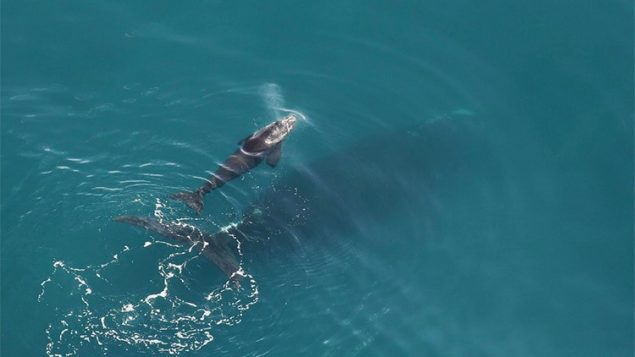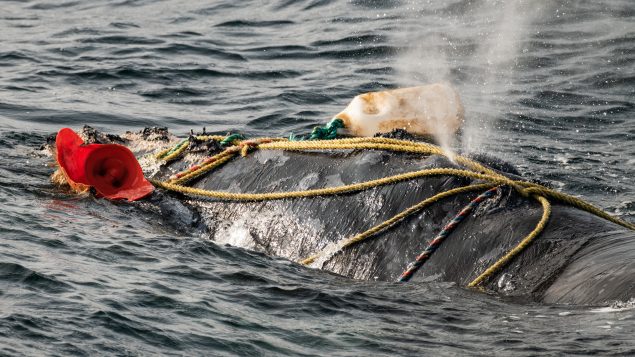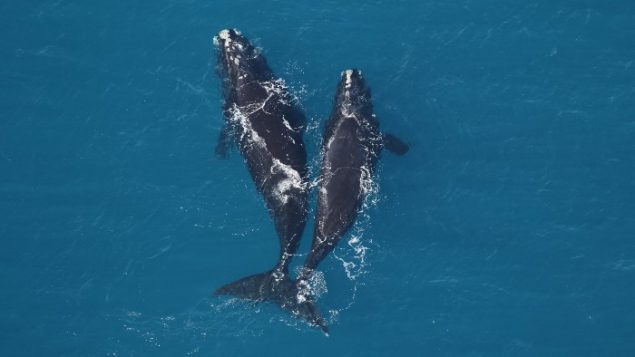Oceana Canada is calling on the governments of Canada and the United States to take immediate action to save right whales from extinction. A new estimate from NOAA fisheries finds the population has dropped from 400 two years to 360. Of those, it’s estimated that only 95 are females. Only nine babies were born this year. Two died, one from a ship strike. The other had scars around its mouth and neither it nor its mother have been seen since January 2020, according to Kim Elmslie, campaign director at Oceana Canada.
“These animals are on the decline, dropping toward extinction,” said Elmslie in a telephone interview. The main threats to the right whales are strikes from moving ships and entanglement in fishing gear.
The Canadian government has taken action to try to mitigate the risks. It has asked ships to slow down in the Cabot Strait to detect and avoid right whales swimming into the Gulf of St. Lawrence from the Atlantic Ocean. But this is a voluntary measure and Elmslie said it should be made mandatory.

Right whale #3560 was seen with her calf off the U.S. state of Georgia in December 2019. The calf later died as a result of a ship strike. (NOAA courtesy of Georgia DNR/CMARI Aerial Survey)
‘A huge effort’
Canada also has taken steps to detect the whales’ movements through aerial surveillance and placing sensors on buoys. When these signal the presence of right whales, fishers are required to remove their traps with lines within a 200 km quadrant for 15 days. “It’s a huge effort, but dependent on surveillance,” said Elmslie. “The whales are dark and they can be hard to see.”
She is encouraged that work is being done to develop ropeless fishing gear. This would involve traps that could be signalled remotely to inflate a flotation device so they can be recovered without the use of ropes. Australia has such traps but they must be adapted to Canadian catches, currents and other water conditions.

One of the biggest threats to right whales like this one in Canada’s Gulf of st. Lawrence is getting tangled in fishing gear. (Nick Hawkins)
Permanent management called for
Oceana Canada is calling on the Canadian government to set up a new way to manage the right whales that would be permanent and would share all its data with the public and researchers. Elmslie said the government now uses crisis management at the discretion of government ministers of the day. She said that some governments are more motivated to act than are others, and that a more permanent solution is needed.
“The best time to act would have been 10 years ago,” says Elmslie. “But we have to do everything we can now or the animal will go extinct.”







For reasons beyond our control, and for an undetermined period of time, our comment section is now closed. However, our social networks remain open to your contributions.